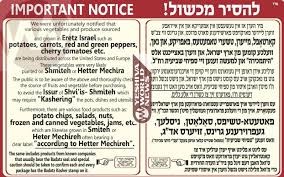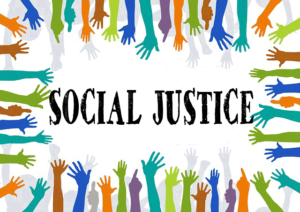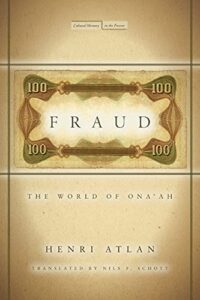Behar 2022 – Social Justice, Overreaching & Commandments No Longer Observed
by devadmin | May 19, 2022 10:43 pm
Raboyseyee & Ladies,
A big mazel tov to David Hopen, he the son of Beth (a friend since 1975, maybe earlier) and Gary Hopen, they of Hollywood Florida, upon his wedding -going on right now at the Seawane Club- with the heylige Ois and eishes chayil in attendance. David is marrying Ariella Spievak, she the beautiful daughter of Susie & Jay Spievak, they of New York City. We have known David since he befriended our son Jonathan over in Reishit. Now an accomplished author of ‘The Orchard’ -check it out here https://www.amazon.com/Orchard-Novel-David-Hopen/dp/0062974742 we wish Ariella and David many decades of blissful marriage. Mazel tov to the entire extended Hopen, Talansky and Spievak families.
Social Justice, Overreaching & Commandments No Longer Observed:
 Though the heylige Toirah dedicates many pisukim in this week’s parsha to the concepts of Shmita and Yoivel, let’s get real; both these mitzvis, are barely observed. Why is that? Because our good rabbis of the heylige Gemora (confirmed again in later times) interpreted the Shmita laws in various ways to ease the burden created for farmers and the agricultural industry. Shmita -in our times and specifically outside the land of Israel- is over and done. The heter mechira (leniency of sale), [a loophole] developed for the Shmita year of 1888–1889, permitted Jewish farmers to sell their land to goyim (non-Jews) so that they could continue to work the land as usual during Shmita. The bottom line: the hesfid mirubah loophole (discussed in last week’s post, check it out www.Oisvorfer.com) eventually ruled the day and so continues ad hayoim hazeh! Big money losses move mountains, obviate laws and keep the plowing going. Plowing is good, if you chap.
Though the heylige Toirah dedicates many pisukim in this week’s parsha to the concepts of Shmita and Yoivel, let’s get real; both these mitzvis, are barely observed. Why is that? Because our good rabbis of the heylige Gemora (confirmed again in later times) interpreted the Shmita laws in various ways to ease the burden created for farmers and the agricultural industry. Shmita -in our times and specifically outside the land of Israel- is over and done. The heter mechira (leniency of sale), [a loophole] developed for the Shmita year of 1888–1889, permitted Jewish farmers to sell their land to goyim (non-Jews) so that they could continue to work the land as usual during Shmita. The bottom line: the hesfid mirubah loophole (discussed in last week’s post, check it out www.Oisvorfer.com) eventually ruled the day and so continues ad hayoim hazeh! Big money losses move mountains, obviate laws and keep the plowing going. Plowing is good, if you chap.
That being said, the debate continues -among those who have followers- as to the nature of the obligation of the Shmita (Sabbatical year) in our times. Some say it remains biblically binding, as it has always been. Others maintain that its but rabbinically binding, since Shmita only biblically applies when Yoivel (the Jubilee year) is in effect. Is Yoivel in effect? Not. Why not? Because says the heylige Gemora (Ayrichin 32b) that Yoivel is only in effect when the (entire) populace of Yiddin are there. In other words, Yoivel is only declared if all the Yiddin are living in the land of Israel. If not, no Yoivel! Fartig. Adds the Rambam and a majority of other commentators: this is true for the previously stated mitzvah of Shmita as well. Givlaldig: no Shmita and no Yoivel today. Ober, mistama for business purposes, bazman hazeh (in today’s times) we understand this to mean that only a majority of the world’s Yiddin need to live there. Do a majority live there? Not! And while many seem to have apartments there, few are living in them. Having an apartment in the holy land may -or may not- get you out of a second day of Yom Tov observance while there, but won’t get one out of Yoivel. Veyter gigangin (let’s move forward). That being said, and though fewer than 50% of the Yiddin live there and even though Min-Hatoirah (biblically), there is no mitzvah of Shmita or Yoivel for that matter, nonetheless, and as suggested earlier, for reasons that are unknown to us, but of course known to the rabbis who declared otherwise, they do enforce a form of Shmita in Israel today. Of course, the loophole going back over 100 years, is alive and well.
 Lest you think that’s all the RBSO had to say in Parshas Behar, that is zicher not the case; grada it’s far from it as the RBSO delivers many additional mitzvis in a parsha seemingly dedicated to social justice causes. And here’s one more tidbit: Behar is a tiny parsha with but 57 pisukim (5th shortest) with barely enough time to have a meaningful conversation during the laining. There’s barely enough time to badmouth the rabbi and others you’re pissed off at mostly for no reason. Yet, it ranks 8th in number of mitzvis taught; impressive for so tiny a parsha. Most are intended to teach us how to get along with one another. How’s that working out? Not so well! Ober all that for another time.
Lest you think that’s all the RBSO had to say in Parshas Behar, that is zicher not the case; grada it’s far from it as the RBSO delivers many additional mitzvis in a parsha seemingly dedicated to social justice causes. And here’s one more tidbit: Behar is a tiny parsha with but 57 pisukim (5th shortest) with barely enough time to have a meaningful conversation during the laining. There’s barely enough time to badmouth the rabbi and others you’re pissed off at mostly for no reason. Yet, it ranks 8th in number of mitzvis taught; impressive for so tiny a parsha. Most are intended to teach us how to get along with one another. How’s that working out? Not so well! Ober all that for another time.
Are Shmita and Yoivel the only two mitzvis gone and forgotten like the rotary phone, the rolodex and $2/gallon of gas? Not! This week we shall shine a shtikel light on a few others -one that became two- in our parsha that kimat no one observes. In fact, the opposite is truer. How do Yiddin arbitrarily decide which of the mitzivs the RBSO gave may be ignored and which not? Ver veyst and taka an excellent question! The Yiddin just figure it out and then rely on Yom Kippur to atone before beginning all over again. It works. Ober does it forgive all sins? More on that below. Does anyone not observe Yom Kippur? Let’s get real: would the Yiddin survive without the ability to speak, listen to, or repeat loshoin horo? Not. Shoin! Ober let’s get real: certain mitzvis in our parsha -and many others- are mamish ignored as if the RBSO never wrote them, or meant for them to be practiced. What are these mysterious commandments? Grada, one involves hurtful words; more below.

Let’s meet the prohibition known as oi’no’uh, What’s that? Why was it prohibited? Is it always? What are the rules of engagement? Who follows them? Anyone? Is there a workaround? A kosher loophole? Shoin, to chap what oino’uh is, let us begin by reading the relevant pisukim. Says the heylige Toirah (Vayikro 25:14-17):
(יד) וְכִֽי־תִמְכְּר֤וּ מִמְכָּר֙ לַעֲמִיתֶ֔ךָ א֥וֹ קָנֹ֖ה מִיַּ֣ד עֲמִיתֶ֑ךָ אַל־תּוֹנ֖וּ אִ֥ישׁ אֶת־אָחִֽיו׃ (טו) בְּמִסְפַּ֤ר שָׁנִים֙ אַחַ֣ר הַיּוֹבֵ֔ל תִּקְנֶ֖ה מֵאֵ֣ת עֲמִיתֶ֑ךָ בְּמִסְפַּ֥ר שְׁנֵֽי־תְבוּאֹ֖ת יִמְכָּר־לָֽךְ׃ (טז) לְפִ֣י ׀ רֹ֣ב הַשָּׁנִ֗ים תַּרְבֶּה֙ מִקְנָת֔וֹ וּלְפִי֙ מְעֹ֣ט הַשָּׁנִ֔ים תַּמְעִ֖יט מִקְנָת֑וֹ כִּ֚י מִסְפַּ֣ר תְּבוּאֹ֔ת ה֥וּא מֹכֵ֖ר לָֽךְ׃ (יז) וְלֹ֤א תוֹנוּ֙ אִ֣ישׁ אֶת־עֲמִית֔וֹ וְיָרֵ֖אתָ מֵֽאֱלֹהֶ֑יךָ כִּ֛י אֲנִ֥י יְהֹוָ֖ה אֱלֹהֵיכֶֽם׃
(14) When you sell property to your neighbor, or buy any from your neighbor, you shall not wrong one another. (15) In buying from your neighbor, you shall deduct only for the number of years since the jubilee; and in selling to you, he shall charge you only for the remaining crop years: (16) the more such years, the higher the price you pay; the fewer such years, the lower the price; for what he is selling you is a number of harvests. (17) Do not wrong one another, but fear your God; for I the LORD am your God.
Check out the bolded words in both Hebrew and English. Did you see the word oino’uh anywhere in the pisukim? Not! Neither did I; ober, our rabbis, reading these two verses decided that אוֹנָאָה, and the word soi’nu -found in pisukim 14 and 17 both mean oino’uh. What’s that? Oino’uh, the Hebrew word for ‘soi’nu means overreaching, or exploitation -and a few other choice words to include ripping off and wronging. In our pisukim, it is the act of wronging another by selling him an article for more than its real worth, or by purchasing from him an article for less than its real worth. Oino’uh can occur knowingly or unknowingly.
Next: Because the first posik quoted (14) above relates to buying and or selling, our sages construed the word “soi’nu” as relating to overreaching in monetary matters. So far so good. They also delineated three degrees of exploitation based on a mathematical approach of the exploitation and the consequences of each breach. The discrepancy -meaning the amount overcharged- could amount to one-sixth, less than one-sixth, or more than one-sixth of the value of the article and each category came with remedies and consequences.
- Less than one-sixth of the market value (Transaction is valid, no restitution)
- One-sixth of the market value (Transaction is valid, restitution for the difference)
- More than one-sixth (Transaction is void, but injured party may waive their rights and allow the transaction to stand)
The law of oino’uh applies to undercharging as well as overcharging. The prohibition against oino’uh does stand- alone in our parsha but is also embraced within the wider prohibition against robbery. The good news: despite the express enjoinder of the prohibition as a negative command, the transgression is not punished by flogging since the overreaching is remediable by restitution, and the person who has overreached – whether wittingly or unwittingly – is obligated to make good on the discrepancy (Yad, Mechirah 12:1; Sh. Ar., ḤM 227:2). More on flogging below. One final note: In Biblical times, land, deeds, slaves and consecrated property were excluded from oino’uh (only land and deeds apply today) as was/is barter. The bottom line: the RBSO does not want us taking advantage of each other.
Shoin, back the parsha where the first of the pisukim read above commands us against overcharging or underpaying in a commercial exchange. A seller is zicher entitled to a reasonable price for his product and a buyer is avada entitled to bargain for a reasonable sale price. According to some, bargaining before a purchase and or sale is a separate mitzvas ah-say (positive commandment) which ironically most do observe. However, it is not permitted to charge an unreasonable price that takes advantage of the buyer’s situation or ignorance. Neither is it permitted for the purchaser to take advantage of the ignorance of the seller or the situation in which the seller may find himself. Bottom lines: don’t gouge when you have the opportunity to do so, and don’t be a chazir.
Is this mitzvah practiced? Has anyone ever told you that he’s lowering the purchase and or sale price to fit into the oino’uh guidelines? Never! A nectigher tug and fuhgeddaboudit. Do people ever repent for violating this commandment? More below.
So far so good, we chap what oino’uh is when it comes to hurting your neighbor or friend in money matters, ober a few pisukim later the heylige Toirah returns to this theme. It tells us again that we are prohibited from aggrieving one another. This behavior is also referred to as oino’uh. A second reminder? And with that, our sages jumped at the opportunity to explain the duplicity and to further connect the dots. Why was there a second posik with the same theme? The first posik already indicates that oino’uh is prohibited in trade. This second cannot be a repetition of the same prohibition against inappropriate commercial dealings. Can it? What is the new message?
Did you chap the question? Do you know what oino’uh is yet? Not? You are not alone. Let’s parse the words one more time: when you sell ‘a sale’ to your friend or purchase ‘a purchase’ from your friend, do not cheat one another. Avada you should not cheat together either if your friend is on the no-bed list, if you chap. Cheating, exploiting (by over or under-charging) can occur in one of two ways. The seller -who is forced to sell the article- and the purchaser, one buying of his own choice, is exploiting the seller; or, it’s the purchaser who is forced to purchase the article, and the seller, who is choosing to sell it, is exploiting him. “Selling a sale” and “Purchasing a purchase” simply refers to these two cases. The bottom line: when doing business with your buddies, do not rip them off! Do not cheat them. Says the Ibn Ezra azoy: we taka needed two pisukim to chap the mitzvah. The apparently redundant phrase (posik 17) “Do not defraud one another…” serves to warn the seller. The original warning (posik 14) was addressed to the buyer.
Grada, the heylige Ois came across the following myseh (story) on this topic. During Elul a milkman came to the Telzer Rav and confessed that he had been diluting the milk and cheating his customers. He sought a program of repentance. The Rav told him that the first–step was to immediately stop diluting the milk. A week later the milkman appeared before the Rav, obviously upset. “I have stopped diluting the milk as the Rav prescribed, and my business is suffering. People refuse to drink my milk. They say it doesn’t taste right.” Bottom line: one can become so accustomed to chicanery, that the emes -the truth- is hard to accept.
Is there good news? Indeed there is, and let’s check out this shtikel from the heylige Gemora (Buba Metzia 51a) where we learn this: the law of overreaching does not apply to the sale of apparel because the owner would not sell such articles except if he received the price he demanded, and this is so even when he is known to have sold these items on account of financial hardship. When it comes to shopping for clothing, all is seemingly kosher. The bottom line: The law of oino’uh forbids financial exploitation, overcharging, and unfair profit margins. It is wrong to take advantage of an unsuspecting customer.
Case closed? Not! Why not? Because our sages were perplexed when they read this same instruction -with seemingly the same message- twice. Check it out above: Twice in four pisukim, the RBSO tells us not to deceive or defraud our brothers, friends and any member of the tribe. And the question on the minds of many an exegete was this: why the repetition? Does the RBSO repeat Himself? Of course not, and so we were taught in yeshiva. Does the heylige Toirah contain any extra words? Don’t answer that especially when just last week we discussed how the RBSO reminds us about observing the shabbis over and again. Ober, our sages could not be stilled. They read kimat the same words a few pisukim apart and were left wondering why the RBSO would deliver this very same commandment in so short a span of words. What’s taka pshat? Shoin, for centuries our sages have told us that when words are repeated, they are not. Ok, they’re not! The bottom line: words and concepts are repeated, quite often in fact. Ok, they are! What’s pshat? The message we are to take away is different with every repetition. Are the words repeated or not? They are. And if they are, they must mean something else, a new lesson, and that’s all our sages needed: an opening for new exegesis. And with that introduction, let us properly analyze the concept of ‘loi soi’nu (one should not wrong) his “neighbor” -posik 14- and “friend” -posik 17- when transacting with him in any way. Simple enough but not for our rabbis who decided that the double language was meant to introduce a brand-new commandment. A new form of causing harm to a neighbor and friend was now forbidden. What is that? Was there another form of cheating or deceiving your friend or neighbor that the RBSO was warning about?

Says the medrish (Medrish Halocho, Sifra, Behar, ch. 4) which deduces from the double sentences two distinct types of oino’uh, azoy: these are separate commandments. Defrauding involving money is oino’as momoin (cheating with money), and then, there is a verbal wrong one can inflict. This form of oino is known as oino’as devorim. We say hurtful things and we inflict pain. This one too is expressly forbidden. Let’s try that in plain English: says the Mishnah (Buba Metzia 58b) azoy: “just as there is oina in a transaction, so, too, there is oina in words.” This “oina’uh of words” is referred to as oina’as devarim.
 Citing Rebbe Yoichanan in the name of Rebbe Shimon b. Yochai, whose yurtzeit we mark today with great sorrow and joy -whatever that means and however that words, the heylige Gemora teaches that oino’as devorim is even more severe than financial fraud. How is that possible? Because the posik -17 quoted above- mentions the fear of G-d specifically in the instruction of oina’as devorim, which implies an added degree of severity. Moreover, the latter strikes only at a person’s money, while the former strikes his self; and third, the latter can be returned, while the former cannot be directly remedied.
Citing Rebbe Yoichanan in the name of Rebbe Shimon b. Yochai, whose yurtzeit we mark today with great sorrow and joy -whatever that means and however that words, the heylige Gemora teaches that oino’as devorim is even more severe than financial fraud. How is that possible? Because the posik -17 quoted above- mentions the fear of G-d specifically in the instruction of oina’as devorim, which implies an added degree of severity. Moreover, the latter strikes only at a person’s money, while the former strikes his self; and third, the latter can be returned, while the former cannot be directly remedied.
One more time: In addition to the prohibition of oino’as momoin, cheating one’s fellow man monetarily by overcharging or underpaying, the heylige Toirah also prohibits various forms of oino’as devorim, verbal deceit. The heylige Gemora provides several examples of oina’as devarim including these: inviting someone for a meal knowing that he will be out-of-town on that day; inquiring about the price of merchandise when one has no intention of buying, but only wishes to compare it to the price of an item already purchased; reminding a ba’al teshuvah of his previous sins; telling a person who is suffering misfortune that he is being punished for his sins. Ober, is this mamish a sin? Don’t we say hurtful things to one another multiple times daily? What’s the big deal?

Says Rebbe Yoicḥonon in the name of Rebbe Shimon in the heylige Gemora (Buba Metzia 58:b) azoy: greater is the transgression of verbal mistreatment than the transgression of monetary exploitation, as with regard to verbal mistreatment, it is stated: “And you shall fear your G-d.” But with regard to monetary exploitation, it is not stated “And you shall fear your G-d.” And said Rebbe Elozor, this, verbal mistreatment, affects one’s body; but that monetary exploitation, (only) affects one’s money. Rebbe Shmuel bar Nacḥmani says: This monetary exploitation, is fixed by restitution; but verbal mistreatment, is not given to restitution. The bottom line: money issues can be resolved by cancelling the deal or through restitution and repayment, ober verbal abuse -oino’as devorim- spewing forth ugly commentary, is seemingly longer lasting, maybe even permanent.
And says the heylige Gemora azoy: Anyone who humiliates another in public, it is as though he were spilling blood. Rav Nacḥman bar Yitzcḥok said to him: You have spoken well, as we see that after the humiliated person blushes, the red leaves his face and pallor comes in its place, which is tantamount to spilling his blood. Abaye said to Rav Dimi: In the West, i.e., Eretz Yisrael, with regard to what mitzva are they particularly vigilant? Rav Dimi said to him: They are vigilant in refraining from humiliating others. They are?
Is there atonement for oina’as devorim? Good news: for this reason, our sages instituted the obligation of going before Yom Kippur to ask forgiveness from anyone we may have hurt or offended. In the absence of such forgiveness and appeasement, Yom Kippur does not affect atonement (Yoma 85b); the viduy (confession) alone will not achieve its purpose no matter how many times you beat your chest that day.
The bottom line: believe it or not, all the above Gemora statements about the severity of hurtful speech are codified as halocho lemyseh (final law), almost without dissent. Says the Rambam and the Shulchan Oruch (Choiseh Mishpot 228:1) that causing somebody emotional pain, through verbal, written, or any other form of communication, is verboten. Do we follow these rulings? Mostly not! Another bottom line: despite all that’s written in the heylige Gemora and elsewhere -all over the place- about the severity of this commandment, the laws of oino’as devorim are not very well known and zicher not adhered to. Farkert: way more time is spent emphasizing the need for a nice esrog and schlissel challah. Shoin! This law too is gone with Yoivel.
The heylige Gemora adds that the RBSO punishes those who verbally abuse others more swiftly than those who commit monetary wrongs. “The RBSO hears the call of one who calls Him out of pain and anguish.” How is this punishment meted out? According to some, since oin’as devorim is a Toirah prohibition which cannot be reversed, a transgressor should be liable for punishment by malkis (39 lashes), and taka so says the Maharam of Rotenberg, and the Mordechai. On the other hand, since the offense of causing emotional pain is perpetrated through words rather than actions, it follows that it should not be punishable by flogging. And taka so says the Chinuch (338): the punishment of lashes is not applicable to oina’as devarim because no physical action is involved.
Any good news? Yes: a happy Lag Bo’oimer to all; sefira restrictions for most are now over, even for those who just began observing it a short 18 days ago on Rosh Choidesh. Givaldig!
A gittin Shabbis-
The Heylige Oisvorfer Ruv
Yitz Grossman
Source URL: https://oisvorfer.com/behar-2022-social-justice-overreaching-commandments-no-longer-observed/